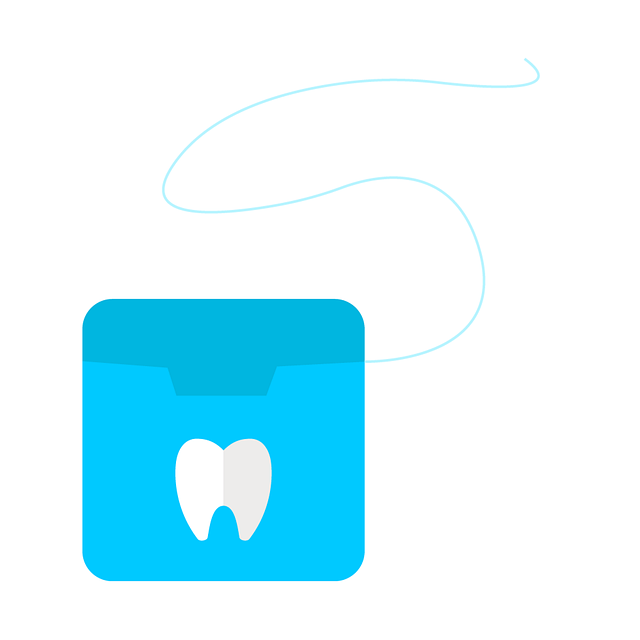Ready to dazzle with your new veneers? Learn how to keep them in top shape with our expert maintenance tips. Say hello to a perfect smile!
1. Understanding Veneers: An Overview of Dental Veneer Care
A dental veneer is a thin shell made from porcelain or composite resin that is bonded to the front surface of a tooth. It can be used to improve the appearance of teeth that are stained, chipped, misaligned, or have gaps between them. Veneers provide a natural-looking solution for individuals looking to enhance their smile.
Proper care and maintenance of dental veneers are essential to ensure their longevity and keep your smile looking its best. Here are some important tips for maintaining your veneers:
- Practice good oral hygiene: Brush your teeth twice a day with a soft-bristled toothbrush and fluoride toothpaste. Be gentle around the veneered areas to avoid damaging the bond.
- Use non-abrasive toothpaste: Avoid using abrasive toothpaste or any products that contain harsh abrasive agents, as these can scratch the surface of your veneers.
- Avoid staining agents: Limit your consumption of foods and beverages that are known to stain teeth, such as coffee, tea, red wine, and tobacco products. If you do consume them, rinse your mouth with water afterward.
Regular visits to your dentist for professional cleanings and check-ups are also crucial to maintaining the health and appearance of your veneers. By following these simple care guidelines, you can ensure that your veneers continue to give you a bright and beautiful smile for years to come!
2. The Importance of Proper Dental Hygiene for Maintaining Veneers
Dental veneers are a popular cosmetic dentistry option that can dramatically improve the appearance of your smile. However, it’s crucial to understand that maintaining proper dental hygiene is essential for the longevity and health of your veneers. Here are a few reasons why:
- Preventing plaque buildup: Good dental hygiene helps prevent the accumulation of plaque on the veneers, which can lead to discoloration and negatively affect their appearance.
- Avoiding gum disease: Maintaining proper dental hygiene lowers the risk of developing gum disease, which can cause gum inflammation and receding gums. These conditions can compromise the integrity of your veneers.
- Preserving veneer integrity: Brushing and flossing regularly ensure that your veneers remain strong and intact. Proper care helps prevent veneer chipping or cracking.
It’s important to note that proper dental hygiene not only involves regular brushing and flossing but also includes visiting your dentist for professional cleanings and check-ups. Your dentist can help identify any potential issues with your veneers and provide guidance on maintaining their appearance and function. By following a consistent dental hygiene routine, you can enjoy the benefits of your veneers for years to come.
When it comes to maintaining the longevity and appearance of your veneers, using the correct brushing techniques is essential. Follow these tips to ensure you safely clean your veneers: Consider incorporating the following brushing techniques into your routine: Properly caring for your veneers between teeth is essential to ensure their longevity and maintain a healthy smile. While flossing may seem challenging with veneers, it can be made easy with a few simple techniques. Here are some tips to help you effectively care for your veneers:
4. Flossing Made Easy: Caring for Veneers between Teeth
Remember, it’s important to floss at least once a day to remove plaque and prevent gum disease. Regular flossing not only maintains the health of your natural teeth, but it also helps keep your veneers looking their best. By following these easy flossing techniques, you can ensure that your veneers and gums stay clean and problem-free.
5. Eating and Drinking Tips: Protecting Veneers from Stains and Damage
Protecting your veneers from stains and damage is essential to maintaining their longevity and aesthetic appeal. Here are some eating and drinking tips that can help you keep your veneers in top-notch condition:
-
- Avoid hard and sticky foods: Chewing on hard or sticky foods can put excessive pressure on your veneers and lead to cracks or breakage. Opt for softer alternatives like cooked vegetables, tender meats, and fruits.
- Minimize consumption of staining foods and beverages: Certain food and drinks can leave stubborn stains on your veneers. Limit your intake of dark-colored beverages such as coffee, tea, and red wine. Additionally, cut back on foods like berries, tomato sauce, and soy sauce, which can cause discoloration.
- Use a straw: When sipping on beverages that have the potential to stain, like soda or fruit juices, consider using a straw. This can help minimize contact between the liquid and your veneers, reducing the chances of unsightly stains.
Furthermore, practicing good oral hygiene habits can also contribute to the maintenance of your veneers:
-
- Brush and floss regularly: Properly cleaning your teeth and veneers twice a day with a soft-bristle toothbrush and non-abrasive toothpaste is crucial. Additionally, floss daily to remove any food particles that may get stuck around your veneers.
- Avoid teeth grinding: If you have a habit of grinding your teeth, especially during sleep, talk to your dentist about getting a mouthguard. Teeth grinding can put excessive pressure on your veneers and lead to damage.
Regular dental check-ups play a crucial role in maintaining the longevity and appearance of your dental veneers. These check-ups are not only for evaluating the overall health of your teeth and gums but also for ensuring the durability and optimal condition of your veneers. Here are a few reasons why regular dental check-ups are essential for veneer maintenance:
– Identification of potential issues: During your check-up, your dentist will thoroughly examine your veneers to identify any signs of damage, such as chips or cracks. Early detection allows for timely intervention to prevent further complications.
– Professional cleaning: Professional dental cleaning at regular intervals helps remove plaque and tartar buildup, which can tarnish the appearance of your veneers. This thorough cleaning also ensures that the margins around the veneers remain free from bacteria, reducing the risk of gum disease.
– Assessment of bite alignment: Over time, changes in your bite may occur, affecting the fit and functionality of your veneers. Regular check-ups allow your dentist to assess your bite and make necessary adjustments to ensure that your veneers continue to function properly.
– Oral hygiene guidance: Your dentist will provide expert advice on how to effectively care for your dental veneers, including proper brushing techniques and the use of specialized tools and products. These tips will help you maintain the natural shine and beauty of your veneers.
By scheduling regular dental check-ups, you can proactively address any concerns and take necessary steps to preserve the beauty and functionality of your veneers for years to come. Don’t underestimate the importance of these routine appointments in maximizing the lifespan of your veneers and enjoying a healthy, gorgeous smile. If your veneer chips or breaks, don’t panic – there are steps you can take to mitigate the situation. Here’s what you should do: Remember, handling dental emergencies can be stressful, but remaining calm and seeking professional help promptly is key. Follow the steps above to increase your chances of successfully resolving the issue without further complications. When it comes to maintaining the integrity of your veneers, making smart lifestyle choices is key. By avoiding harmful habits, you can ensure that your veneers stay in great shape for years to come. Avoiding Staining: Protecting Your Veneers: Veneers are an excellent investment and can significantly enhance the appearance of your teeth. With proper care, they can last for many years, providing you with a long-lasting smile. To ensure the longevity of your veneers, it is essential to understand the do’s and don’ts of veneer care. Do’s:
8. Avoiding Harmful Habits: Maintaining Veneer Integrity through Lifestyle Choices
9. Enhancing Veneer Longevity: Understanding the Do’s and Don’ts of Veneer Care
Don’ts:
- Avoid biting or chewing on hard objects, such as ice or pen caps, as this can cause your veneers to chip or crack.
- Refrain from using your teeth to open packaging or bottles, as this can put excessive pressure on your veneers.
- Avoid excessive alcohol consumption, as it can weaken the bonding material used for veneers.
- Avoid using abrasive dental products such as whitening toothpaste or mouthwashes that can scratch or damage the surface of your veneers.
- Avoid high-powered electric toothbrushes, as they may cause unnecessary friction on your veneers.
Understanding and following these do’s and don’ts will help you maintain the longevity of your veneers and keep your smile looking beautiful for years to come. Remember to consult your dentist for personalized advice on caring for your specific veneers and to address any concerns you may have.
10. Reaping the Benefits: How Proper Maintenance Can Prolong the Lifespan of Your Veneers
Proper maintenance is key to maximizing the lifespan of your veneers. By following a few simple steps and
1. Brushing and flossing: Just like natural teeth, veneers require regular brushing and flossing to remove plaque and bacteria. Use a soft-bristled toothbrush and non-abrasive toothpaste to gently clean both the front and back surfaces of your veneers. Don’t forget to floss daily to reach the areas between your teeth and gums where plaque can accumulate.
2. Avoid staining substances: Although veneers are stain-resistant, it’s important to minimize exposure to substances that could potentially discolor them. Steer clear of foods and beverages known for causing stains, such as coffee, tea, red wine, and dark-colored fruits. If you do consume these substances, rinse your mouth with water afterward or brush your teeth to minimize their contact with the veneers.
Conclusion
Taking proper care of your veneers is crucial for their longevity and maintaining a healthy smile. Remember to practice regular oral hygiene, avoid staining agents, protect against damage, and schedule routine check-ups with your dentist. By following these pro maintenance tips, you can enjoy your veneers for years to come!




